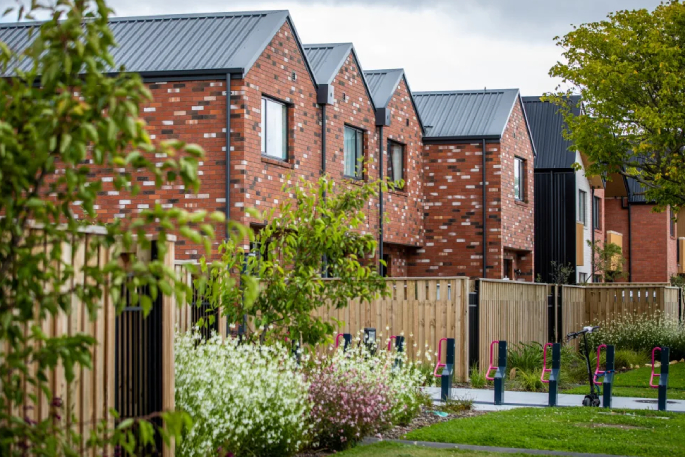Analysis - Inflation drops, borrowers take a gamble on one-year mortgage rates, and pet-owning renters are thrown a bone. Here's what moved real estate this week.
Activity in the housing market is picking up, with increasing stock levels giving buyers more choice.
The Real Estate Institute's house price index, which measures the changing value of properties, fell 1.2 per cent in March over February, led down by 1.9 per cent price drop in the Auckland region.
The national median price rose 2.7 per cent to $800,000 from $779,000 the year earlier.
REINZ chief executive Jen Baird says March market activity had been boosted by a 23 per cent increase in the number of listings.
"Growing numbers of buyers are acting now," she says.
Agents were seeing activity among a range of buyer groups, with first-home buyers and owner occupiers being the most active, she says.
They were optimistic that market activity would continue to pick up into the cooler months.
Inflation
Annual inflation has slowed to a near three-year low despite a slight quickening in the first quarter of the year.
Stats NZ says the consumer price index rose 0.6 per cent - driven by higher rents, rates, insurance and alcohol and tobacco, which offset cheaper petrol and international airfares.
The annual rate eased to 4 per cent from 4.7 per cent - the lowest since June 2021.
The RBNZ says it was confident inflation would be back in its target 1 to 3 per cent band by the end of 2024, but repeated that interest rates would stay high until it was certain that was happening.
The RBNZ's last monetary policy statement in February hinted at rate cuts possibly starting as late as June 2025, while financial markets have scaled their bets to November 2024.
Interest rates, economic growth
Local borrowers have been trying to second-guess when the RBNZ will start cutting interest rates by moving to shorter-term mortgages, even though it will cost them more.
Property research firm CoreLogic says 56 per cent of new loans in February were fixed for one year compared to 36 per cent in December with borrowers guessing rates have peaked.
The property sector was set to remain sluggish going well into next year, CoreLogic chief economist Kelvin Davidson says.
Meanwhile, households and businesses would need to watch spending until mid-2025, Infometrics chief forecaster Gareth Kiernan says.
"Between then and 2027, lower interest rates, less contractionary fiscal policy and the improving world economy will all contribute to an acceleration in economic growth back towards 3 per cent per annum," he says.
Infometrics forecast annual inflation to drop below 3 per cent by early 2025, which would give the Reserve Bank confidence to begin cutting the official cash rate in November from 5.5 per cent to a neutral rate of 4 per cent by the end of 2025.
Pet bonds
The government has announced a pet bond regime will be in place by the end of next year.
Housing Minister Chris Bishop says he expected landlords would use good faith when negotiating pet bonds with their tenants.
The bond would be capped at two weeks' rent, tenants would be liable for any damage beyond fair wear and tear, and landlords could withhold consent on reasonable grounds.
"Reasonable grounds" for refusal was context-specific, Chris says, but would ultimately be established by legal precedent in the Tenancy Tribunal.
However, Renters United spokesperson Luke Somervell says it would not do much for tenants.
"Pet bond changes don't offer more security for renters; in fact, they open the door for landlords to pad their wallets at renters' expense."
He says landlords could still evict tenants whenever they wanted, with the return of no-cause terminations.
However, New Zealand Property Investors Federation vice-president Peter Lewis welcomed the move and told Morning Report pets increased the risk of damage for a landlord.
People were happier when they lived with their pets, and landlords wanted happy tenants, so anything that made the process easier was a good thing, he says.
KiwiBuild projects delayed
Kāinga Ora stopped releasing the outcome of any new KiwiBuild developments after the commencement of the government's independent review of the housing provider.
In December, the coalition government announced the probe chaired by former prime minister Sir Bill English.
Select committee documents showed Kāinga Ora made the decision to delay some work programmes such as KiwiBuild following the review.
Meanwhile, funding for support services designed to help people out of emergency housing is due to expire in two months - and the government will not commit to extending it.
That is despite its recently announced target to reduce the number of households in emergency housing - currently about 800 - by 75 per cent in the next six years.



0 comments
Leave a Comment
You must be logged in to make a comment.